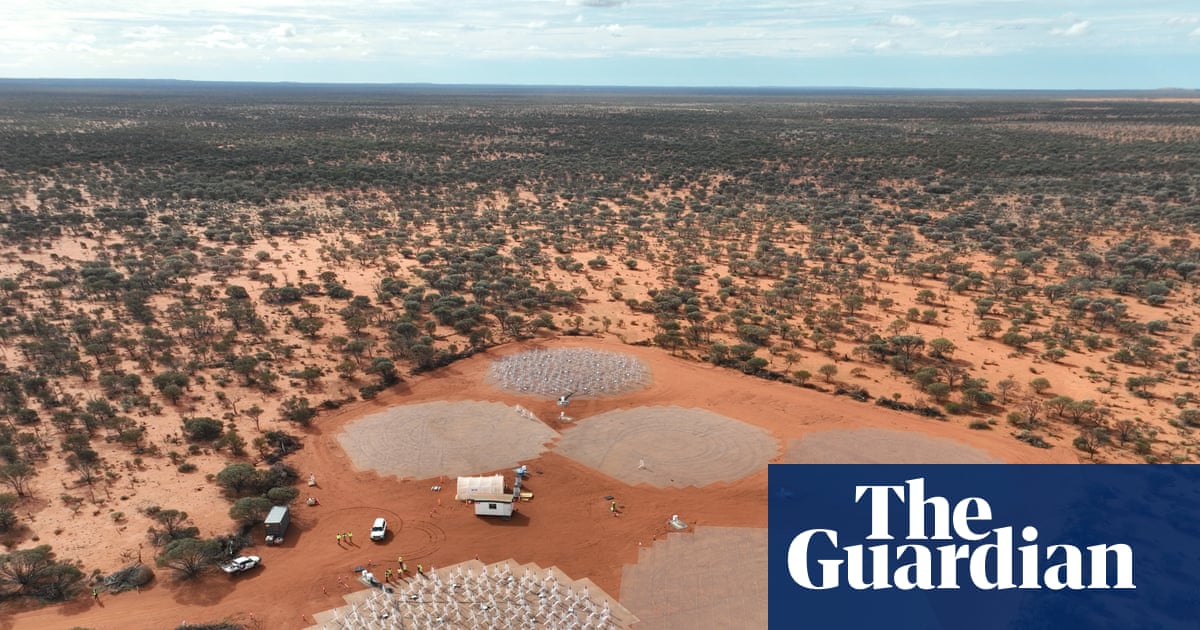The organisation behind the Square Kilometre Array Observatory in outback Western Australia says an independent investigation into claims of financial mismanagement has found “no credible evidence” of any wrongdoing.
In August, Guardian Australia reported on whistleblower complaints regarding the global radio astronomy project, including claims that funds had been lost through external trading accounts and concerns around procurement.
On Monday, the organisation released the findings of a report into the allegations conducted under the organisation’s whistleblower policy which found that none of the whistleblower allegations had been upheld.
The whistleblower has this week resigned in protest.
In a statement, the SKAO council chair, Dr Filippo Zerbi, said that following receipt of the disclosures in March he had commissioned the UK office of international law firm Squire Patton Boggs to complete an external investigation into the complaint.
The whistleblower had objected to SPB conducting the probe given SKAO was an existing client of the firm. However, Zerbi said that given this potential conflict, “strict barriers between SPB teams were put in place to ensure full impartiality of the process”.
Sign up: AU Breaking News email
“The report found that none of the allegations were upheld, and that the whistleblower fundamentally misunderstood accepted financial and accounting practices,” Zerbi said.
“SPB was given unrestricted access to all SKAO material and resources, was encouraged to speak to any employee that they wanted in a confidential manner, and to instruct any experts that they felt necessary to assist the investigation,” Zerbi said.
“SPB have confirmed to me that the findings in the final report are their findings and their findings alone.
“By examining requested documentation, internal records, and relevant communications, as well as interviewing key SKAO personnel, there is no credible evidence to support any of the allegations.”
The whistleblower resigned this week, criticising the internal process and saying he had been “constructively dismissed” after raising his concerns.
In a letter to the member nations of the SKAO, he said his case was now the subject of an internal employment tribunal and claimed the handling of the matter reflected a wider culture “where accountability is punished and transparency suppressed”.
But Zerbi said the case had demonstrated “the strength of the SKAO as an organisation and its policies”.
“The matter has been addressed fairly and externally, following best practice. SKAO staff and stakeholders must feel confident that the handling of business in the Observatory is transparent and overseen at all levels.”
The SKAO – described as one of the most significant scientific endeavours of the 21st century – is tasked with mapping the first billion years of the universe.
Along with a sister telescope in South Africa, the Square Kilometre Array Observatory is a €2bn (A$3.6bn) project established by international treaty and comprising 16 different member nations.
The Australian government’s contribution to the project has blown out by more than $150m from 2020 to 2024 compared with its initial budget, with the additional expenditure partly attributed to funding shortfalls for the project.
The Australian government has spent $475m on the SKAO from 2021 to 2025. The SKAO telescope near Murchison in Western Australia was now operating at 1% of its capacity and last year captured its first images of distant galaxies.
In August, the organisation told the Guardian it was reviewing the telescope’s planned rollout, saying: “The scope and schedule of the SKA project, a massive undertaking to deliver the world’s two largest and most complex radio telescopes, are under constant review.”

